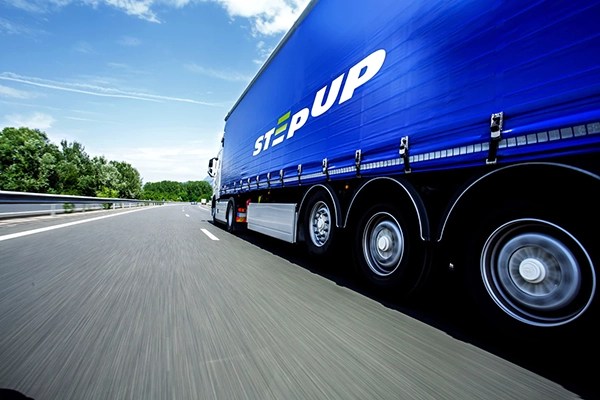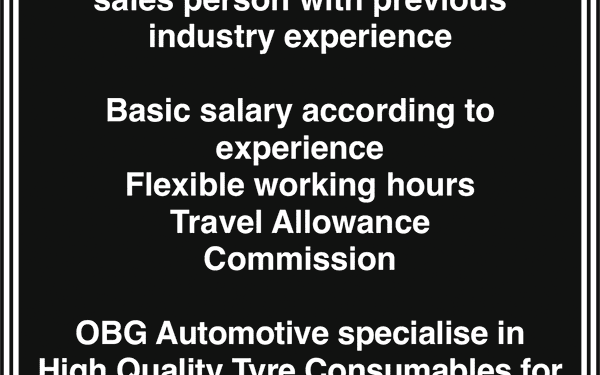
Rising costs, staff shortages, legal requirements or the climate crisis: the transport and logistics industry is currently facing a number of challenges. At the upcoming IAA Transportation expo in Hanover, Michelin will show how it is contributing to finding solutions. With Michelin Connected Mobility, Michelin will be presenting a comprehensive solution for holistic fleet management at Stand B26 in Hall 19/20. It combines high-tech tyres, tyre management, predictive maintenance and networked fleet management – making fleets safer, more efficient and more resource-friendly.
“We have to lay the foundation today to shape the mobility of tomorrow in a liveable world. A modern mobility that is geared towards sustainability,” says Philipp Ostbomk, Vice President B2B Europe North, Michelin. “The transport and logistics industry is helping decisively to shape this world. For our customers, it’s about staying competitive in the long term in a highly competitive market – profitably, efficiently and sustainably. That’s why we are working closely with them to make their fleets fit for the future.” Consequently, the trade fair claim StepUp – side by side for your sustainable mobility was a deliberate choice: “StepUp is our appeal to all players in the industry: we can only work out solutions for the future together!”
With the StepUp initiative, Michelin is pursuing a comprehensive approach to harmonise economic growth and sustainable mobility. This in-depth strategy addresses the needs of customers by optimising costs, increasing productivity, ensuring driver safety and improving fleet management. For three decades, Michelin has been helping transport companies to achieve their environmental goals and navigate a competitive environment.
Tyres for a more efficient and safer fleet
The efficiency, robustness and durability of tyres have a direct impact on overall fleet costs, downtime, driver safety and the environment. For example, a significant share of fuel consumption is directly attributable to the rolling resistance of the tyres. Michelin will be presenting two tyre innovations at the IAA Transportation in Hanover. Michelin’s premium tyres are now optimised for rolling resistance and designed for fuel efficiency. Fleet operators will benefit from fewer tyre changes and a better carbon footprint.
Truck tyres that are machined and retreaded using the special Michelin Remix hot retreading process also achieve an up to 150 percent higher mileage. A retreaded truck tyre produces around 135 kilograms or about two thirds less CO2 emissions than a new truck tyre (rolling resistance class D). “Retreading is an environmentally friendly and resource-saving process – and an important component of a more sustainable mobility in the transport sector for us,” according to Ostbomk.
Generate added value with data
In addition to tyres, Michelin also helps fleet operators improve the performance of their fleet. For example, with the data-driven management solutions of Michelin Connected Fleet, users receive a complete real-time overview of the usage of all vehicles in the fleet. This enables them to make optimal use of their fleets, reduce operating costs and increase road safety through feedback on driving behaviour as well as improve both fuel consumption and the carbon footprint. With solutions such as Trailer Premium from Michelin Connected Fleet, operators will also be prepared if legal regulations change – for example, in terms of tyre pressure monitoring.
With Michelin Smart Predictive Tire, the company is demonstrating a digital solution that prevents unnecessary and costly breakdowns and allows the maintenance of the tyres to be planned ahead of time. As soon as the pressure or temperature of the tyres deviates from the standard or tyres wear out, the solution notifies fleet managers so they can respond immediately.
The fleet of tomorrow – at the IAA today
With Symbio, Michelin is demonstrating how new driving concepts can pave the way for a sustainable future. In a joint venture with Faurecia and Stellantis, the company is further advancing the industrial use of hydrogen. “Hydrogen is a key technology for us on the road to emission-free mobility,” according to Ostbomk. At the end of last year, Symbio opened its first gigafactory for the production of fuel cell systems in Saint-Fons, France. The production capacity there is expected to increase to 50,000 by 2026.
Source: Tyretradenews




























